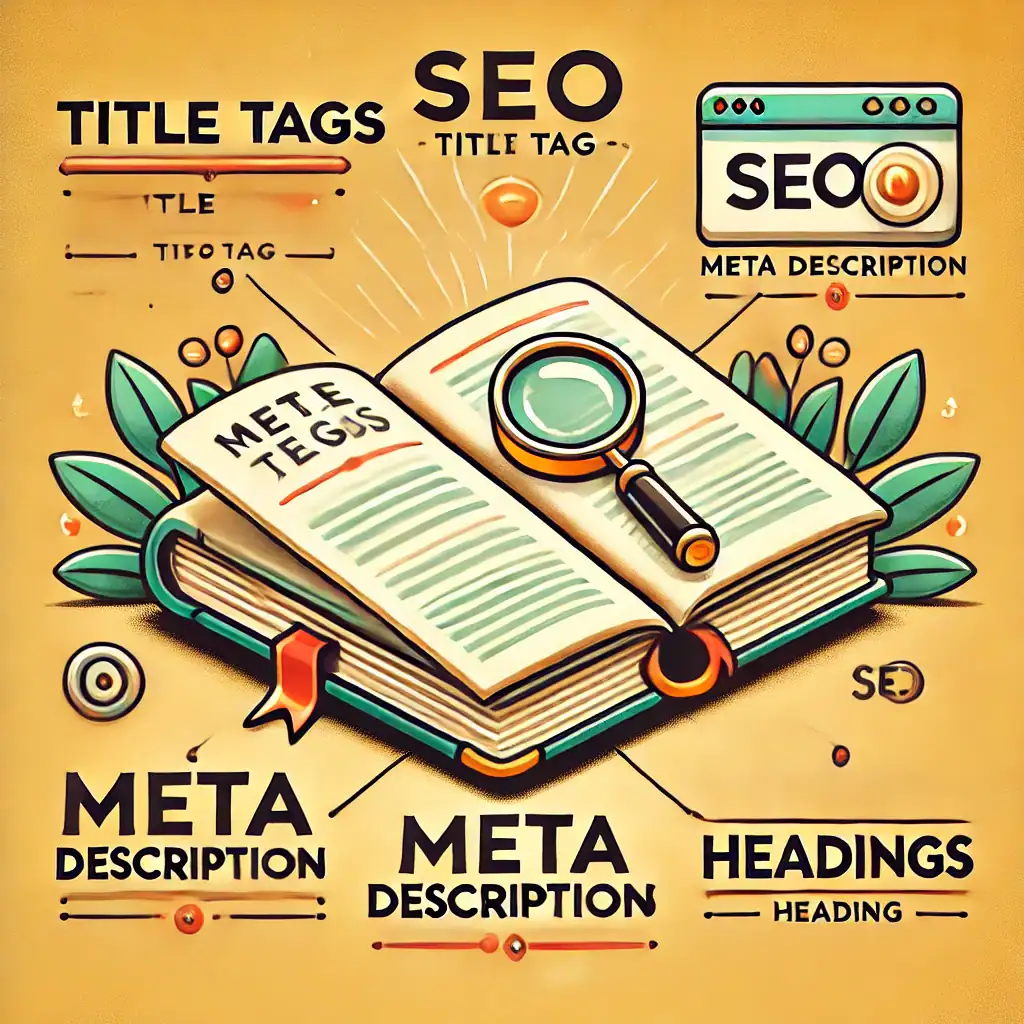If you’ve ever wondered how websites appear at the top of Google, the answer is usually SEO—Search Engine Optimization. For beginners, understanding the basics can seem a little overwhelming, but don’t worry—I’ll break it down in plain English.
Whether you’re starting a blog, launching an online business, or just curious about how it all works, learning the SEO basics for beginners is a brilliant place to start. Not only will it help your content get found, but it’ll give you a clearer picture of how search engines like Google actually work.
SEO, or Search Engine Optimization, might all sound like mumbo-jumbo, but it’s really not as complicated as it seems. Think of SEO as your website’s way of standing out in the vast crowd of the internet. It’s like dressing your website up for a big event so it can shine and attract the attention it deserves.
So, why does SEO matter?
Imagine looking for a new coffee shop online.
Chances are, you’ll go to the one that pops up at the top of the search results, right? That’s SEO in action—it’s what helps people find your website when they’re searching for something you offer. Without it, your website might be out there, but it’ll be like a hidden treasure no one can find.

What is SEO, Exactly?
SEO, or Search Engine Optimization, is all about making your website easier for search engines to find, understand, and recommend to users. It’s how you improve your visibility when someone searches for something related to your content.
At its core, SEO helps your website stand out from the crowd, bringing more visitors and potential customers your way. That’s why getting to grips with SEO basics for beginners can give your online presence a much-needed boost.
SEO Myths: What It Isn’t
Before we dive in, let’s clear up a common myth:
SEO isn’t some magical trick that will instantly put your website at the top of the Google search page.
Think of it more like planting a garden. You sow the seeds (set up your SEO basics), water them regularly (make ongoing improvements), and with time, your hard work will pay off.
And another thing: it’s not all about being number one. Sure, it’s great to rank high, but what matters most is being useful and relevant to the people searching for what you offer.
The Building Blocks of SEO: Keywords Made Simple
Let’s talk about keywords—these are the words or phrases people type into Google when they’re searching. For example, if someone’s looking for “homemade candles,” they might type that exact phrase. So your job is to make sure those words lead them to your website.
Finding the right keywords doesn’t have to be hard. Think of it like choosing the perfect ingredients for a recipe. There are tools like Google Keyword Planner that help you discover what people are searching for, so you know which “ingredients” to focus on.
And here’s anothere tip: don’t always go for the most popular keywords.
Sometimes, smaller, more specific phrases (called long-tail keywords) work better. For example, instead of “candles,” try “eco-friendly soy candles.” It might attract fewer people, but they’ll be more likely to love what you’re offering.
Oh, and about using keywords—don’t overdo it! You don’t need to stuff them into every sentence. Write naturally, like you’re chatting with a friend, and sprinkle keywords in where they fit.

Your website is like a book, and SEO helps make it reader-friendly. For example:
- Title Tags: Think of these as the book’s title—it tells people (and search engines) what your page is about.
- Meta Descriptions: This is like the summary on the back cover. It should be short, interesting, and make people want to click.
- Headings: These are like chapter titles. They guide readers (and search engines) through your content
Don’t forget about images! Adding short descriptions (called alt text) to your pictures helps search engines understand what they’re about. It’s also a great spot to add those keywords we talked about earlier.
Finally, think about how everything flows. Link to other pages on your site to make it easy for visitors to explore. )For example, if you click this highlighted text, it will take you to a post called ‘The Top 10 SEO Mistakes Beginners Make“) This is a link and also helps search engines understand your site’s structure.
Beyond Your Website: Off-Page SEO
SEO isn’t just about your website—it’s also about how the rest of the internet sees you. Backlinks, for example, are like recommendations from other websites. If a trusted site links to yours, it’s like getting a thumbs-up from a friend, and search engines take notice.
Social media is another great tool. Sharing your content on platforms like Facebook or Instagram gets more eyes on your site and can lead to more visits, shares, and backlinks.
Building your website’s “street cred” (called domain authority) takes time. It’s influenced by how long your site has been around, how much people trust it, and how useful your content is. Keep creating great content and connecting with others online, and your credibility will grow.
Keep Track of Your Progress
And Finally...
I hope this SEO basics for beginners guide has given you a solid starting point. The good news? You don’t need to be a tech wizard or marketing guru to get going—just a bit of curiosity and a willingness to learn. Start small, take it step by step, and remember—it’s a marathon, not a sprint. With patience and consistency, your efforts will pay off, and your website will become a go-to destination online.
Are you feeling more confident about tackling SEO now? Or maybe you’ve already started making small changes to your site? I’d love to hear what’s working for you—or what’s got you scratching your head.
Pop your questions, wins, or tips in the comments—I’ll do my best to help! And if you’re after a step-by-step platform where you can practise what you’ve learned, check out Wealthy Affiliate—it’s where I got started, and I still find it super helpful.
Here’s a little transparency: My website contains affiliate links. This means if you click and make a purchase, I may receive a small commission. Don’t worry, there’s no extra cost to you. It’s a simple way you can support my mission to bring you quality content.”

